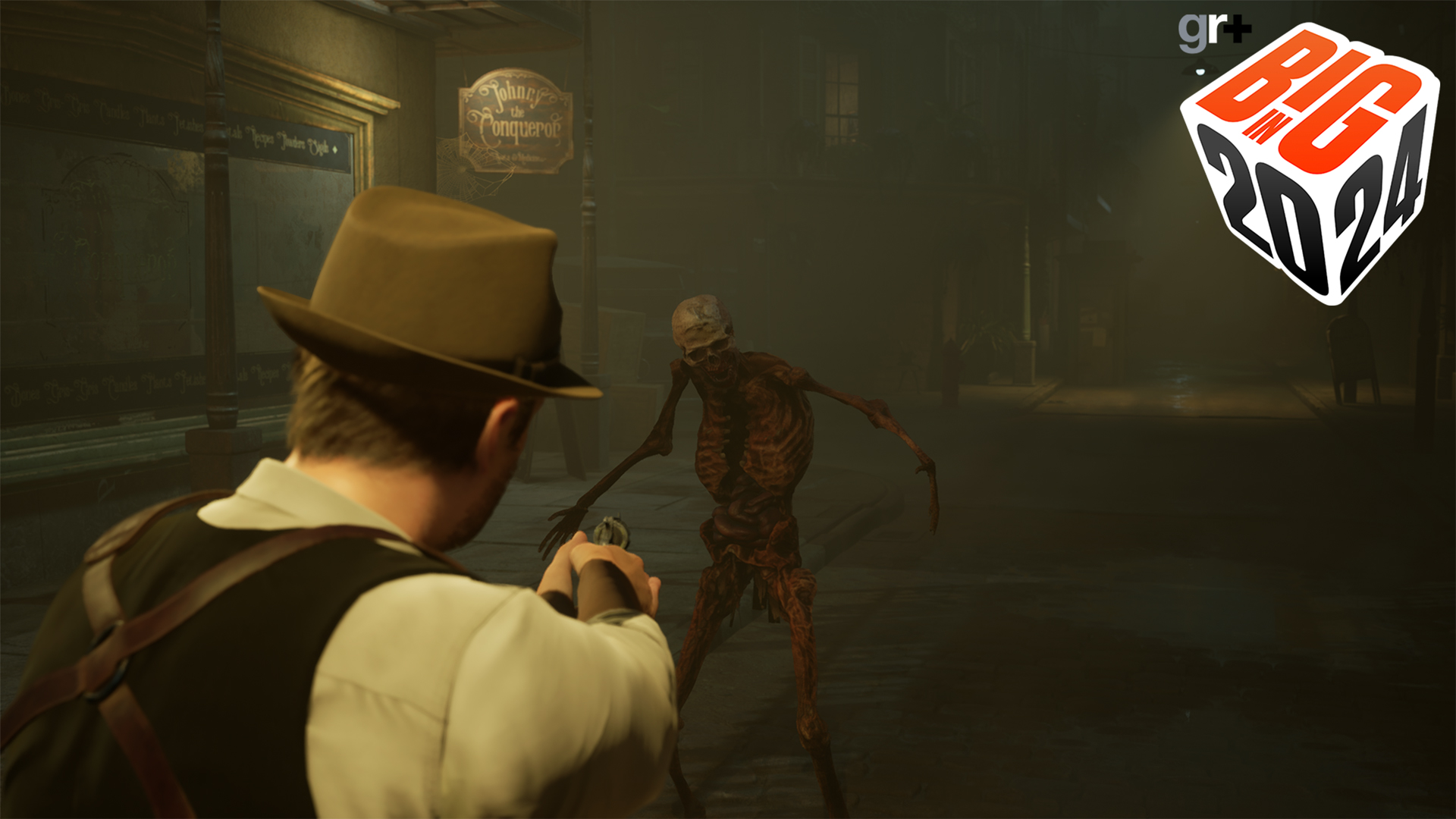
The Derceto Manor oozes character. Wood-panelled halls give way to locked doors, creaking staircases, and no end of strangely evasive inhabitants – all of whom are guarding a secret I'm determined to uncover. The grand mansion which helped define the original Alone in the Dark has been transformed into a psychiatric hospital in the sprawling THQ Nordic remake, and it would very much feel like a third protagonist were it not somehow working against me.
As I play through Alone in the Dark's opening three chapters, beginning as Emily Hartwood, before shifting over to Detective Edward Carnby, I uncover more questions than answers. It's a thrilling experience, the ambience bolstered by a doom jazz soundtrack that ebbs and flows with the action as I navigate a maze of puzzles, monsters, and paranormality.
THQ Nordic's upcoming horror game classic does a brilliant job of recontextualizing this survival horror classic, leaning into a new '20s setting with confidence while holding fast to the spirit of the original. The result so far is an intriguing detective yarn that feels more thriller than all-out horror at times, and although I was hoping for a good scare, a creepy whodunnit seems a far better fit this time around.
Love the craft
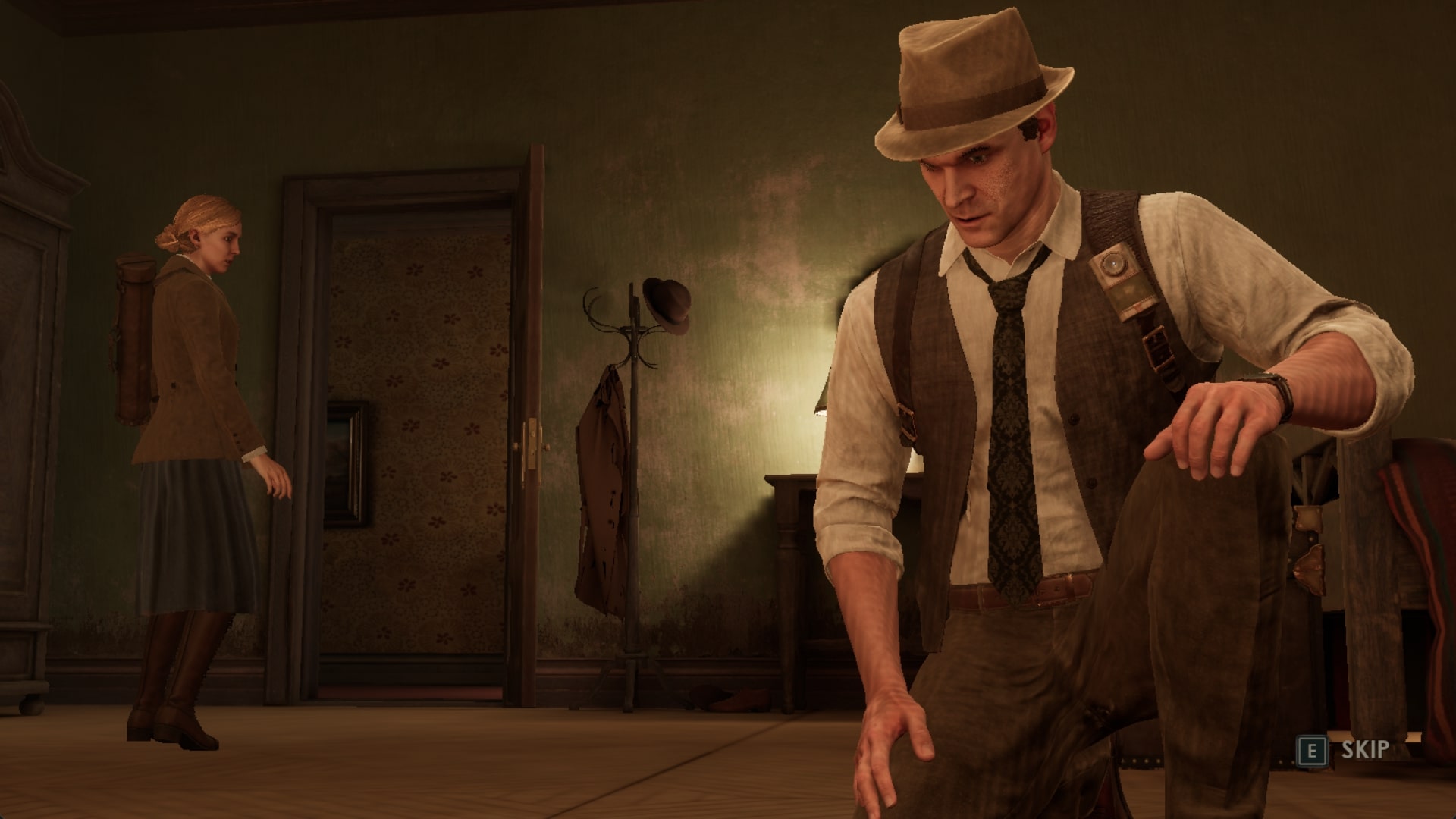
This isn't the first time a developer has tried their hand at an Alone in the Dark revival. Developer Eden Games took a stab back in 2008, an ambitious effort which unfortunately missed the mark. Now, some 16 years later, Pieces Interactive is working together its own vision for the future of the series that is showing a lot of potential.
Split between plantation-turned-psychiatric facility Derceto Manor and Jeremy Hartwood's dreamworld, the two realms represent two different playstyles. The nonlinear puzzles of Derceto are offset by gunslinging, monster-killing action sequences that you access via a talisman, and each time you travel there, you need to solve a different puzzle. It's suggested that this seemingly voodoo-based magic will help Emily track down her lost uncle, who inexplicably has gone missing at Derceto.
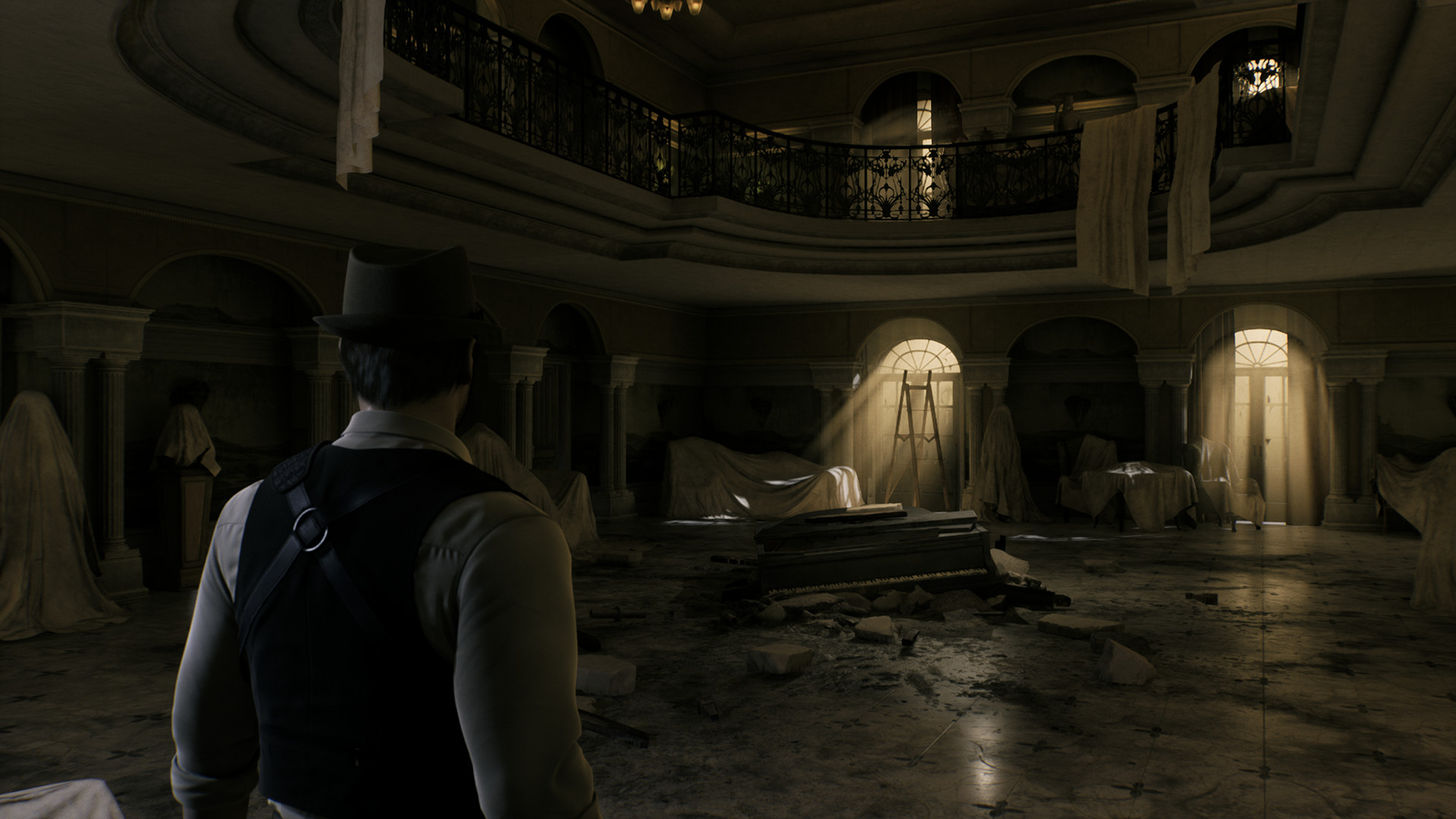
Talking to his fellow patients, when you can find them, provides a little background for Jeremy's case. Emily dismisses their oddities as clinical madness at first, but Derceto is not all it appears to be. There are a substantial amount of cutscenes in the first three chapters, each featuring a new character – patient, doctor, or otherwise – to help you get a clearer picture of what it's like to live at the mansion.
There's a distinct old-world Hollywood feel about these cinematics, with Jodie Comer and David Harbour's famous acting chops sometimes making me forget that I'm playing a video game instead of watching a Stranger Things/Killing Eve crossover. Even the clues are fully voiced when examined in my inventory, and it all feeds into an impeccable sense of worldbuilding.
That's not to say I didn't run into any problems while playing through this preview – it's an early build after all, and the game was recently delayed yet again. But even with some roughness around the edges in terms of loading times and textures, what I've seen of Alone in the Dark's atmosphere is stylish, authentic, and meticulously-detailed.
Worlds beyond
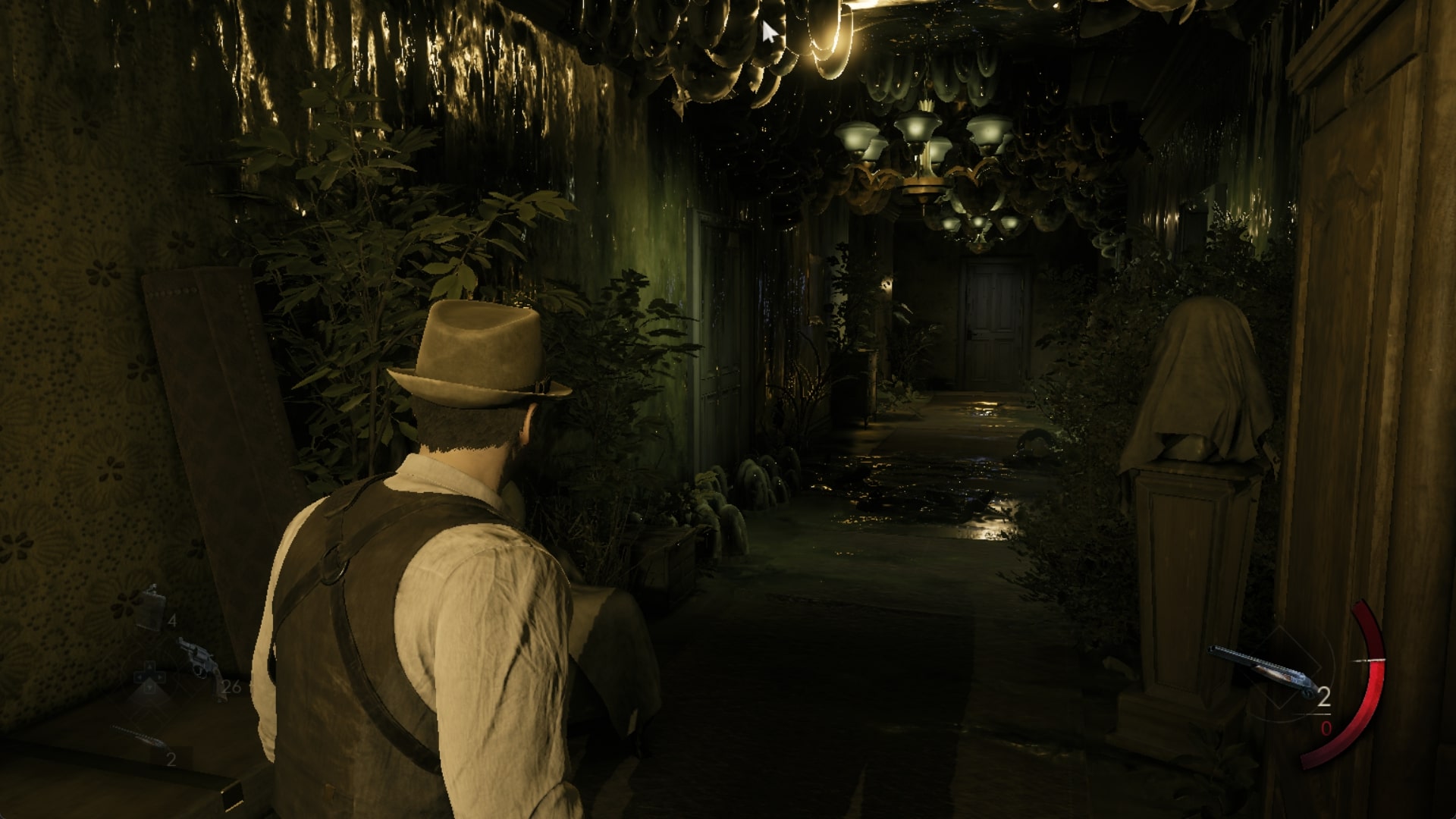
While the mansion feels claustrophobic to explore, full of locked doors and puzzles through which to gain access to them, Alone in the Dark's dreamworld is an ever-evolving liminal space filled with untold horrors. From the monster-infested French Quarter to an abandoned oil rig that feels somehow reminiscent of Resident Evil 7, I never know what to expect when I use my talisman to step through from Derceto.
These talisman puzzles are straightforward enough, largely involving a codex to work out symbols and their corresponding numbers, though playing on Modern mode, most of the clues pop up as interactable items when I walk past them. Turning this game mode off would help me lean into the detective aspects of Alone in the Dark a little more, if I so wanted to, as I'd need to pick through each room carefully to ensure I didn't miss anything.
The Derceto portions of the game focus on story, context, and puzzle-solving, but I'm not entirely safe from the dreamworld even here. Flashes of swampy bayou flicker into focus as I slip through Derceto's corridors as Detective Carnby. I run into a new room just as it fills with a viscous black sludge, the windows thrown open, birds cawing loudly outside as if alerted to a dangerous presence. These visions are gone in a flash, but the feeling that I'm constantly walking on one side of a precariously-balanced coin keeps me from ever letting my guard down.
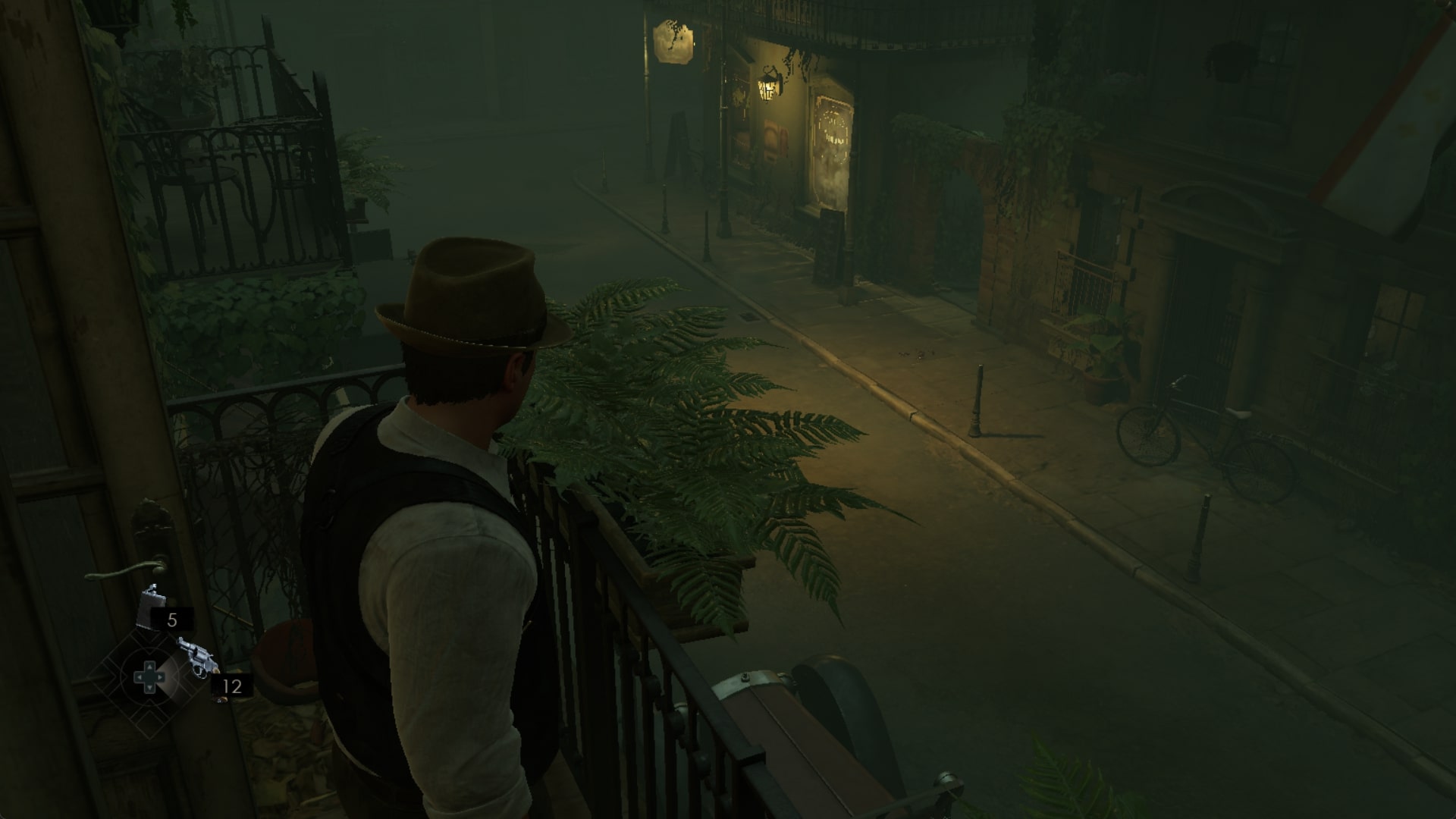
Exploration is key in Alone in the Dark, yes, but it's also a survival horror game. That means combat features heavily all the same, despite its heavy psych-thriller leanings. I've so far only unlocked a pistol and shotgun for both characters, with ammo for either weapon being plentiful. I'll allow the fact that there happens to be a lot of pistol bullets, shotgun shells, and health-replenishing bottles of alcohol hidden in various rubbish bins and freezers throughout this quaint New Orleans-adjacent town.
In terms of the gunplay itself, I largely had no issues with it aside from the occasional sound drop-out when firing the pistol. Guns weren't the only option, either, since I was also able to pick up heavy makeshift weapons for melee attacks should I run out of gun ammo. These included pipes, wrenches, and even a fire axe – though all of them broke after five or six consecutive whacks.
There's a distinct old-world Hollywood feel about these cinematics, with Jodie Comer and David Harbour's famous acting chops sometimes making me forget that I'm playing a video game...
Alone in the Dark's combat did start to open up toward the end of my three-chapter preview, with throwable items and flammable Molotovs offering unique environmental kills. What I've seen so far leads me to believe that unlocking guns will function similarly to other modern survival horror games like Alan Wake 2, Resident Evil Village, and Dead Space – I'll have to solve puzzles to get them.
Ambient, brooding, and lovingly adapted from the original, I'm excited to see Alone in the Dark reach its full potential. It might not break any new ground in terms of its faithful survival horror machinations, but it more than makes up for that with vibrant characters, settings, and storylines that pulled me in instantly.
There's a magnetic strangeness about Derceto, both in how you navigate it and how odd its inhabitants are, that can feel more otherworldly than the dream sequences at times. It begs one question: which is the real world and which is the nightmare? I'll have to wait for March 20, 2024 to find out, but I'm happy to sit with the strangeness until then.







